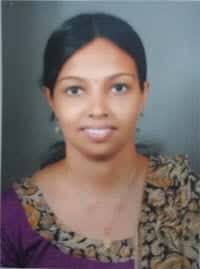ICMR JRF Exam – How to Qualify, Reference Books, Exam Pattern
The Indian Council of Medical Research (ICMR) is one of the biggest organizations in the world, which provides Junior Research Fellowship awards to young scientists via an Exam it conducts annually known as ICMR – JRF Exam. The fellowship is to help young researchers excel in the field of biomedical sciences research, at medical colleges, biomedical research institutes, and universities in India & abroad, where top-notch facilities and adequate laboratories are ready to accelerate their research to a greater extent.
ICMR – JRF EXAM PATTERN
ICMR- JRF exam is conducted once in a year in the month of July mostly at 12 different centers across the country.
The ICMR exam comprises of 2 sections:
- SECTION A – General Aptitude
- SECTION B/C – B for Life Science and C for social science.
Section-A contains a total of 50 questions and each question carries 1 mark. This is a common cum compulsory section. This section contains general aptitude under which statistics, chemistry, physics, distance speed concept, scientific phenomenon, and general science are included. Nowadays general aptitude is included in all competitive exams so one must practice it regularly.
Generally, they ask
very basic questions from these topics. In order to clear this section, one must go through and mug up some basic and important portions from 9th, 10th,11th, and 12th standard books. The reason behind adding aptitude type of questions in competitive exams is to check a person’s intelligence and problem-solving ability. They are of logical reasoning. Among these subtopics, questions from physics and chemistry are asked in a basic way.Adding to that, one must have good and clear knowledge about statistics because 5 to 7 questions are asked from this area. If not entirely, at least one must have some idea about mean, median and mode. Besides, general knowledge in basic sciences, especially chemistry portion is also equally important. Above all, one must be aware of the scientific phenomenon in everyday life such as hurricanes, tornadoes, earthquakes, greenhouse effect, etc.
Section-B. It contains a total of 100 questions, of which one needs to attend 75 questions. Each question carries 1 mark each and this section contains the subject one chooses while applying for the exam. So a total of 50 questions from section-A and 75 questions from section -B makes a total of 125 marks.
Section-B comprises of questions from biochemistry, pathogenic infections, pathogenic diseases, biophysics, genetics, microbiology, techniques, botany, bioinformatics techniques, immunology, biotechnology, human biology, molecular biology, and pharmacology. The weightage of marks is more from these topics. There are many more subjects in this section but these are the important modules from examination point of view.
The syllabus is similar to CSIR but the exam pattern is slightly different. This section also needs one’s basics to be clear. Here the questions are not long compared to CSIR.
Questions asked in this section are easy to an extent because they are mainly memory-based, short analytical type for which the calculation part is very small, just like CSIR Part B. At times certain biochemistry problems are asked but they can be solved with the help of 1 or 2 equations.
Qualifying Criteria For ICMR-JRF exam
The qualifying criteria of this exam is 55% individually from both the sections (A and B/C). Negative marking for this exam is 0.25%. The fellowship count is only 150 throughout the country, of which 120 fellowships are awarded in the field of Biomedical Sciences and remaining 30 are reserved for Social Sciences.
Strategy To Solve More Questions in ICMR JRF Exam in Less time
Another thing that needs to be noted here is the duration of the examination, which is 2 hours. There is time constraint in this exam as one needs to attend 125 questions in 120 minutes. One cannot spend even 1 minute for 1 question. Since the time is limited so the candidate is expected to answer the questions directly instead of thinking and answering later i.e. answering then and there itself. The approach while writing the ICMR exam should be to read and write simultaneously.
People who are well confident of section-B have more chances of qualifying this exam. While answering the questions don’t be afraid and never answer anything that you are not sure of, as a wrong answer will lead to negative marking.
Download ICMR JRF Sample Question Paper Here
TOP REFERENCE BOOKS FOR ICMR JRF EXAM
- Principles of Biochemistry by Lehninger
- Biochemistry by Voet and Voet
- Molecular Cell Biology-Lodish
- Cell and Molecular Biology – Gerald Karp
- Molecular Biology of the gene by Watson
- Microbiology-Lansing M Prescott
- Microbiology-Harley
Immunology by Kuby - Plant Physiology by Taiz and Zeiger
- Animal Physiology by Gerard J Tortora
- Principles of Genetics by John Gardner
- i-Genetics by Russel
- Gene Cloning and DNA Analysis: An Introduction by T. A. Brown
- Wilson and Walker (7th Edition)
- Environmental Biotechnology: Principles and Applications
- Biology by Campbell and Reece
ICMR Junior Research Fellowship (JRF) 2019 Exam Official Notification
STRATEGY FOR QUALIFYING ICMR JRF EXAM
1. EXAM ANALYSIS
First, go through the previous question papers very thoroughly and be calculative about the weight and trend of the topics. Even though ICMR previous year question papers are not easily available, one can find the questions resemblance more to GATE life science question paper and that of section-B of CSIR UGC NET paper and to some extent DBT as well. The questions are mostly direct so can be answered directly i.e. if one knows about it then they can answer easily otherwise not.
Since the syllabus is vast, so there is no need to cover up the entire syllabus, just analyze the previous year question papers and find the portions that are more frequently asked and till what extent the questions are pointed from that particular portion. So, focus on those portions more. This will definitely save the day.
No doubt the exam is tough and the cut off varies every year. There is a concept of negative marking too, so one should not answer it randomly by saying “my mind says so…my heart says so…”.
Do not skip any reference book, specifically when it comes to life sciences. Most of the questions are from these books only. For example, if one covers a biochemistry topic, say Lipids, start by reading this chapter and every time you come across a detail that you are not aware of, just write it down those points in the notebook. Do this for all the chapters of each book that one reads. And once finished writing, do write the highlights of the chapter.
2.TRY TO KEEP YOUR CONCEPTS CLEAR
In order to crack the ICMR JRF exam, it is very important that the concepts are being cleared. For example, instead of 5 topics one can cover 3 topics, but make sure that those 3 topics are studied thoroughly so that they can attend any type of questions if asked from the same.
3.TRY TO MAKE SHORT NOTES AND REVISE THE TOPICS
While making notes, make sure that notes are written in own words rather copying from anywhere. Don’t stick to a single book instead refer 2 or 3 standard reference books. Once note making is done always make notes of important points, which means try to concise those notes too, so that a few days before the exam, no need to go through the entire portion, instead, they can opt for these mini notes which will help in saving more time and revising more. Because for any exam, revision is a must, more the revision more is the in-depth knowledge and clarity of topics one attains. You can implement “Ten to One” formula, i.e. cutting summarizing 10 pages read into one page long notes.
Make sure to highlight the important points while studying.
4. TIME MANAGEMENT
Learn time management before exams as well as during exams. It’s not necessary to devote the entire time on studying. Don’t count the number of hours you studied instead to see how effectively you are utilizing the time. Always manage some time for revision every day. And during exam time is limited to make sure that every single minute is utilized properly. Always try to be updated regarding the concerned subject.
It’s better if one starts learning through diagrams, flowcharts, pictorial representation, etc. It is also possible to make pictures or diagrams based on your own observations, that may make things easier for you when you revise your notes.
5. PRACTICE MORE WITH MODEL PAPERS & TESTS SERIES
Practice more of online tests and mock test series. Since online tests will help in managing the speed during the exam. At least try solving minimum 15-20 questions a day. In a sense, not just simply reading or mugging up answers instead analyze why the particular option is correct and why the other options are incorrect and where have you come across those options before. In this way simultaneously one can gain knowledge about many portions all at once. Since all the topics are somewhere correlated; be it biochemistry or molecular biology or microbiology, etc, all are interrelated, so try to find out that connectivity. Also, make it a habit to solve the question papers within the given time limit.
6. POSITIVE AND CAN DO ATTITUDE
Having a positive attitude is the need of the hour if you want to qualify ICMR JRF Exam. Don’t give up no matter what. Have self-confidence. Negative thoughts are inevitable but make sure it won’t distract your confidence and move ahead with an aim, with an intention and a reason. No need to be a bookworm, just relax, eat well, stay healthy and plan certain activities that help in relieving stress.
Nowadays the competition is very tough, the more effort one gives, the better will be his/her results no doubt about that. So try to give the best in the upcoming exam and most importantly write the exam in a very relaxed manner, don’t be in too much hurry burry.
Everyone is distinct and unique with their own strengths and weaknesses. So one needs to devise their own strategy to work on. People will guide, give tips, but it varies from person to person because a single strategy will not work for all. In the end, it’s up to the individual how he takes the tips and how he is going to frame it for his own to get a better output.
 with an educational background in Biotechnology. She is one of the finest teachers at Biotecnika and wins students heart with her immense knowledge and experience. This article has been penned by her to assist ICMR JRF aspirants.
with an educational background in Biotechnology. She is one of the finest teachers at Biotecnika and wins students heart with her immense knowledge and experience. This article has been penned by her to assist ICMR JRF aspirants.Keywords: ICMR JRF Exam Strategy, How to Crack ICMR JRF Exam, ICMR JRF Exam pattern, ICMR JRF Exam syllabus, ICMR JRF exam reference Books, ICMR JRF Exam 2019.









































GOOD Now i will definitely try to crack icmr exam